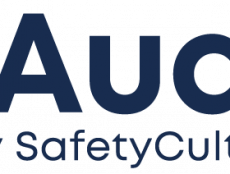
Opening statements
When it comes to creating online training programs, Learning Management Systems (LMS) have been at the heart of deploying, tracking and hosting learning content and data for the best part of the last decade. Organizations regularly rely on these systems to help support online learning offerings in a way which can be managed and accessed easily by all key stakeholders. The current LMS market is estimated to reach $7.8 billion in 2018 (Capterra), steadily increasing since 2013 ($2.6 billion). But what does the future hold for the trusted LMS, and does it still have a role to play over the next decade? Today we are putting the LMS on trial, so let’s hear its defense.
The Defence
As both corporate and academic organizations move increasingly further towards delivering some kind of online learning and training provision, the LMS can still be seen as a cost-effective way to manage this process. According to a substantial and in-depth report into the LMS from Capterra, 45% of respondents believe that these systems are cost-effective, and are either satisfied (38%) or very satisfied (25%) by their solution. Alongside this, it was also noted that course completion and student satisfaction had both significantly improved since the deployment of an LMS into an organization.
Although the LMS has its roots through desktop access, a new generation of multi-device compatible solutions are now available on the market allowing learners to access course content anytime, anywhere. This has given the LMS a new lease of life as learners can now access learning content in a way that suits them best. Figures from 2015 (Learning Management Userview) suggest that 89% of learners were still accessing the LMS through their desktop, however, we can expect those figures to dramatically shift as more LMS companies realize the potential of m-Learning.
The Prosecution
 Is the term ‘Learning Management System’ still applicable in the modern age of contemporary online learning? For many organizations, the LMS is used as a repository for useless and dry learning content and is often seen as the place where information goes to die. As traditional classroom training is moved online, the LMS is often not used to its full potential leading to a stale and boring transaction of information. Often these systems are clunky and unintuitive, leading to a frustrating experience, one which is not seen as valuable as its traditional counterpart. This could be due to most LMS training focusing on how to upload documents and administration, rather than how to get the most out of collaboration tools such as forums and social learning. The most used LMS functions include trainee testing (73%), training administration (68%), record keeping (53%) and document management (45%), suggesting the LMS is more suitable for administrators rather than the learners themselves.
Is the term ‘Learning Management System’ still applicable in the modern age of contemporary online learning? For many organizations, the LMS is used as a repository for useless and dry learning content and is often seen as the place where information goes to die. As traditional classroom training is moved online, the LMS is often not used to its full potential leading to a stale and boring transaction of information. Often these systems are clunky and unintuitive, leading to a frustrating experience, one which is not seen as valuable as its traditional counterpart. This could be due to most LMS training focusing on how to upload documents and administration, rather than how to get the most out of collaboration tools such as forums and social learning. The most used LMS functions include trainee testing (73%), training administration (68%), record keeping (53%) and document management (45%), suggesting the LMS is more suitable for administrators rather than the learners themselves.
Closing arguments
The LMS is often seen as a necessity when it comes to organization e-Learning deployment. Integration with other systems is crucial, in particular with talent management systems and other performance development solutions. Alongside this, tracking and reporting are standard features of most Learning Management Systems meaning they are a great way to monitor KPI’s and understand the potential ROI, which is ideal for learning and development teams wanting to understand the value of the platform.
Verdict
In regards to training efficiency and organization, the LMS is still a suitable solution for most academic and corporation organizations needing to monitor their online learning in an effective and clear way. However, there should be more focus on the way the LMS is used to create meaningful and worthwhile learning experiences, rather than how it supports the administration of the learning. The LMS is going to be around for the next few years at least, so make sure you are using it in the most effective way for your organization, and most importantly for your learners. For more information on the current HR Technology landscape, download this free report from eLeaP.









No Comments